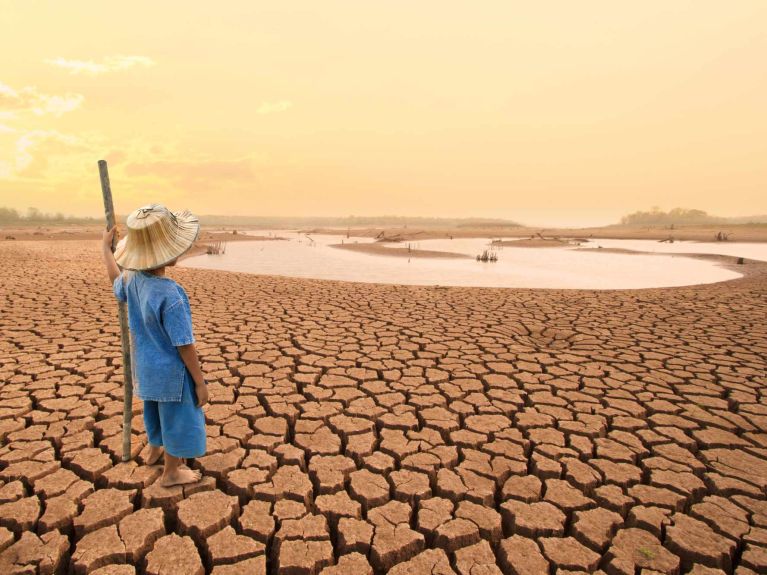Containing humanitarian crises worldwide
Climate change is intensifying humanitarian crises. Hinrich Thölken explains how Germany is helping to contain disasters.

Humanitarian crises are intensifying worldwide as a result of climate change. Even if we succeed in limiting global warming, it will bring about lasting changes worldwide. Ambassador Dr Hinrich Thölken, advisor on climate and energy foreign policy, explains what Germany is doing to alleviate humanitarian crises caused by climate change.

Mr Thölken, why does climate change pose a threat to the humanitarian situation worldwide?
Climate change has the power to move frontiers, bring about territorial changes and endanger global food security.
Some parts of the world will become uninhabitable as a result of climate change – something that will already happen within a few years and decades. The lives of hundreds of thousands of people are endangered by climate change. In the future we will experience mass migrations from Africa and Southeast Asia, which will in turn lead to crises in other countries.
The lives of hundreds of thousands of people are endangered by climate change.
What are the greatest security risks that will result from climate change?
The availability of drinking water is a very central factor. The use of rivers in dry areas is an issue of national interest in many countries. One example here is the tensions between Egypt, Sudan and Ethiopia that have occurred as a result of the Grand Ethiopian Renaissance Dam on the Nile.
There are many more other areas in which climate change is causing conflicts and will continue to do so in the future if we do not pursue a preventive policy that identifies crises before their onset and takes precautions to avert them.
Climate change will cause conflicts if we do not pursue a preventive policy that identifies crises before their onset and takes precautions to avert them.
Nevertheless, although the world has made great efforts to formulate abstract security strategies during the last twelve years in which I have been deeply engaged in the issue of climate change, little has actually happened until now.
What do you regard as concrete preparedness measures?
At the beginning of October Germany established the Climate for Peace Initiative, with which we aim to work on concrete solutions in an interdisciplinary and international way. We want to accomplish the leap from theory to practice. We are inviting countries to join the initiative for that purpose. The principle is that states support one another with concrete proposals to alleviate the impacts of climate change.
With this initiative we aim to collect examples of best practice from individual countries and then apply them to resolve problems in other countries. That is how we would like to create real changes at the local level and reduce the security risks of climate change.
You would like to receive regular information about Germany? Subscribe here:


